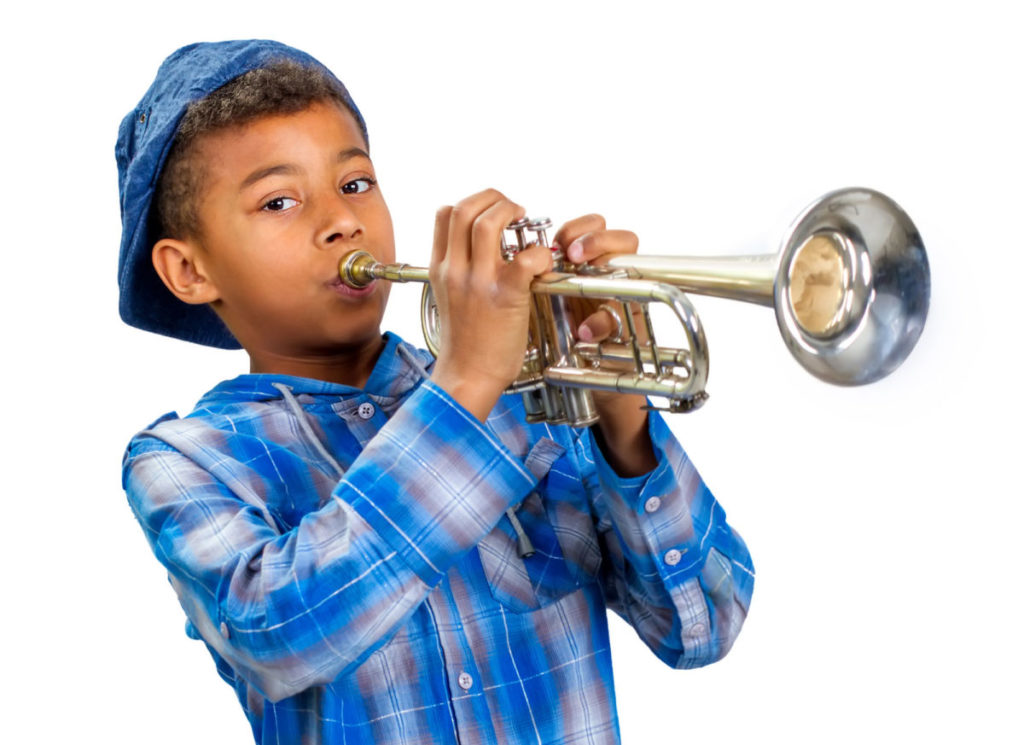One of the most frequent questions we get and one of the biggest concerns for most teens who are getting braces is whether or not they will still be able to play a musical instrument while wearing braces. Any musical instrument that requires the use of the mouth might seem like a no-go when you are wearing braces, but the truth is that your metal braces should not affect your ability to play your favorite instrument or instruments. There will be an adjustment period, however, when you first try to play a musical instrument with braces. You might have to spend a little bit of time training your mouth again, but it is more than possible. Here are some tips to help you play a musical instrument with braces.
1. Put in a few extra hours of practice.
With school starting again, you might be nervous about getting back into playing your musical instrument, especially considering the addition of braces to the mix. But practice is the key to making yourself feel more comfortable and to adjust to playing with braces in your mouth. Keep in mind that the first few days of practicing, your braces are going to feel uncomfortable against your lips, especially if you are playing an instrument like trumpet or trombone (though, of course, the woodwinds are not excluded). Building up the calluses on the inside of your lips takes a week or so, but once they are there, you will not have to worry about discomfort any more. Extra practice will speed up this process. Some of the notes might be difficult to get to as you retrain your embouchure, but you will get there.
2. Wax up your braces and wires.
One of the best things you can do when getting back into playing an instrument while wearing braces is to use the wax that was given to you by your orthodontist. Every wind instrument requires you to press the instrument’s mouthpiece against your lips, which will put pressure on your braces. If you put wax over any of the spots on those braces that might irritate your lips, you are far less likely to have to deal with painful irritation or sores inside your lips. Even full appliances might be a good solution if you are struggling with playing your instrument because of discomfort. While a full appliance of wax across your braces does take significantly more time and requires more effort to get right, it could be a good alternative to going without.
3. Change up your routine.
While you certainly are not going to have to completely relearn how to play your instrument, now might be the perfect time to switch up your practice routine. This is also a great way to change up and avoid a lot of the mistakes that you might have made when you were completely comfortable playing. Because you have to adjust how you play, you might discover some of the bad habits you’ve developed and actually eliminate them from your routine. A good place to start is with the low tones. Start out soft and find the most comfortable position for your mouth that also gives you the best tone. Your muscle memory is going to be disrupted, so allow your mouth to find its new position. Work your way up to higher notes, slurring as you go. This will help to retrain your embouchure.
4. Be aware of the braces themselves.
In general, your braces are not going to affect tonguing in anyway, unless part of the braces are on the inside of the teeth. For example, you might have an expander across the top of your mouth. If you have been trained to tongue against the roof of your mouth, you are going to find that this is no longer a good option. You will have to find a new style. Many patients will tongue against the bottom edge of their top row of teeth. Not only does this give them more control, it also avoids an expander or any other part of their braces that might be on the insides of their teeth. This is something else that you are going to have to practice with in order to get right and to develop new muscle memory for. You cannot simply decide you are going to tongue this way. You have to train the mouth so that it does this automatically.
5. Be prepared to use more breath.
Most musicians will come to realize that they are going to need to use more breath while playing when they have braces. This affects woodwinds the most, as they might find themselves clamping down on the mouthpiece harder than they were when they were not wearing braces. This is just another adjustment that you are going to have to make in order to continue to play your instrument.
6. Consider a braces alternative.
Many students worry about their ability to perform at a high level when they are considering getting braces. While braces usually have little effect on your ability to play once you are past the adjustment period, some musicians will not want to give up any time at all or do not want to have to learn to how to play all over again, which might set them back a couple of weeks or interfere with a big performance or audition. If braces really are going to cause a problem for the musician, a braces alternative like Invisalign might be the better option.



